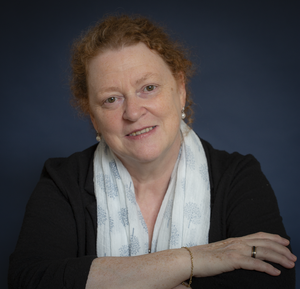Professor Dame Sue Black to co-chair Westminster Commission on Forensic Science
Over the next 18 months, a Westminster Commission inquiry, co-chaired by Professor Dame Sue Black, Baroness Black of Strome and President of St John's, and Professor Angela Gallop, will be taking evidence over a series of sessions conducted in Westminster and online. It will be seeking submissions from forensic scientists, academics, lawyers and police investigators as well as victims of miscarriage of justice and their representatives.
Barry Sheerman MP, co-chair of the All-Party Parliamentary Group on Miscarriages of Justice (APPGMJ) described the need for the new commission:
‘Our reputation as the global gold standard for forensic sciences has been badly tarnished over the last decade. We are launching an investigation into the state of the sector and we do that as a result of our concern that the innocent are being wrongly convicted. The Westminster Commission on Forensic Science will shine a light on the sector and how its ‘products’ are used, and make recommendations to drive up quality and reliability in this important but overlooked corner of the justice system.’
Sir Bob Neill MP, co-chair of the APPGMJ, added:
‘Over the last five years since we started our work, we have heard from lawyers specialising in criminal appeals as well as families about their concerns about the role of forensics leading to wrongful convictions and enabling the real criminals to escape scot-free. We have also noted with increasing alarm the consistent warnings both from forensic scientists themselves and the Forensic Science Regulator which have gone unheeded. At the heart of many of the notorious miscarriage of justice scandals in the past – from the Irish cases, such as the Birmingham Six and Guildford Four, to Barry George and Shaun Hodgson – is the issue of forensics. The misapplication of forensic science can and often has resulted in the wrongful conviction for many years of the innocent. But pioneering forensic approaches can lead to wrongful convictions being overturned and justice restored.’

Professor Dame Sue Black commented:
‘Sometimes we need to be reminded that “science” is the most important word in forensic science. Robust and appropriate science requires constant testing and retesting, it needs research funding to develop and it relies heavily on practitioners who must be highly skilled, experienced and well trained. If science is to be used effectively and appropriately to support a fair and just investigative process, then there can be no tolerance for shoddy science or scientists.’
Professor Angela Gallop further explained:
‘Forensic science has now become so powerful that you don’t need to be able to see a trace of potentially relevant material to get a result from it. This means that it is increasingly important to ensure that the right tests are applied by properly trained scientists to the right items, and the results are carefully interpreted in the context of the specific case at hand. If any of this doesn’t happen, then forensic science will not only fail to prevent miscarriages of justice but is likely actively to contribute to them.’